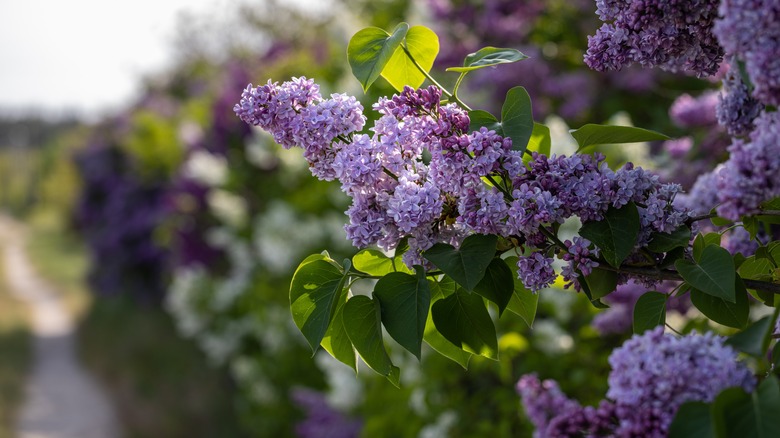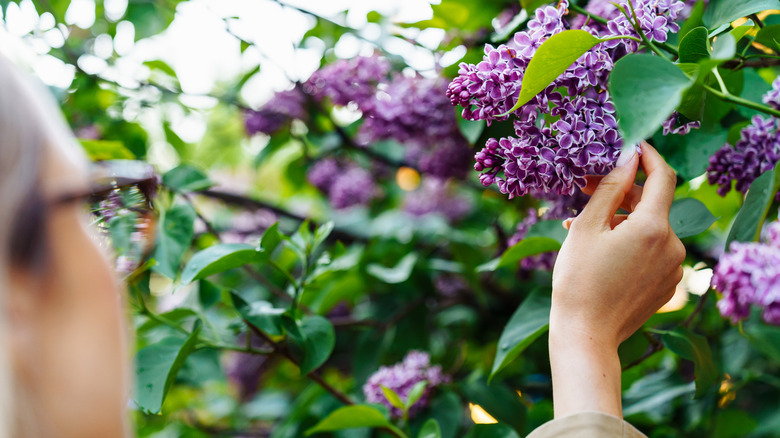The Household Staple You Should Add To Your Lilac Bushes For Stunning Blooms
Lilac bushes have been beautifying yards and parks for generations, enticing passersby to sniff their lavender flowers. The blossoms' fragrance is an important ingredient in the perfume industry, and syrup made from their petals is gaining steam in the culinary world, adding a floral note to cocktails, lemonades, and desserts. These stunning plants can also attract hummingbirds to your garden, bring butterflies to your yard, and offer nectar to hungry bees. However, some of the main problems lilac owners encounter involve soil composition. Technically, lilacs don't require fertilization, but they often produce more flowers after a nutrition boost. The Epsom salts in your pantry or bathroom can give them the minerals they need to stay healthy and smell heavenly.
Epsom salt can help you remove tree stumps, grow sweeter tomatoes, and coax flowers out of stingy lilac bushes. Be sure to use the proper amount of this household staple, which is a mix of magnesium and sulfur. Dilute a tablespoon of Epsom salt in a gallon of water, blend well, and use it to water the bushes in the spring, before the buds produce leaves. If more fertilizer seems necessary, you can reapply this solution in the fall, after the plants go dormant. After this, resist the urge to fertilize. Using more Epsom salt or applying additional fertilizers may prevent flowering by telling the plant to invest its energy in leaf and stem development. This can happen when they absorb too much nitrogen, a likely outcome if they're served excess fertilizer.
Why Epsom salt can help your lilacs flower
If your yard's soil is low in magnesium, Epsom salt can help you grow greener grass, convince lilac bushes to flower, and more. It essentially acts as a magnesium supplement, restoring a healthy level of this mineral to the soil that feeds your plants. Magnesium helps plants make chlorophyll, which fuels photosynthesis and other biochemical processes that help them grow. It makes photosynthesis occur faster and improves the transport of potassium and nitrogen, which help plants make flowers and fruit. Magnesium is even thought to influence essential oil production, which could mean better-smelling flowers. Most importantly, this mineral makes plants stronger, enhancing their ability to flower.
Sulfur, Epsom salt's other chemical component, is also a crucial part of the flowering process. Sulfur assists plants with protein fusing and other activities related to nutrient absorption and energy production. In particular, it drives the synthesis of amino acids your lilacs rely on to flower. As an added bonus, sulfur can help plants ward off diseases.
If twice-yearly application of Epsom salt isn't helping your lilacs bloom, your soil probably has enough magnesium and sulfur. Instead of adding more of these elements, check that the soil's phosphorus content is adequate and that the plants are receiving the right amounts of water and sunlight. Also be sure that you're pruning the bushes at the correct time of year: in the springtime, just after they flower.

